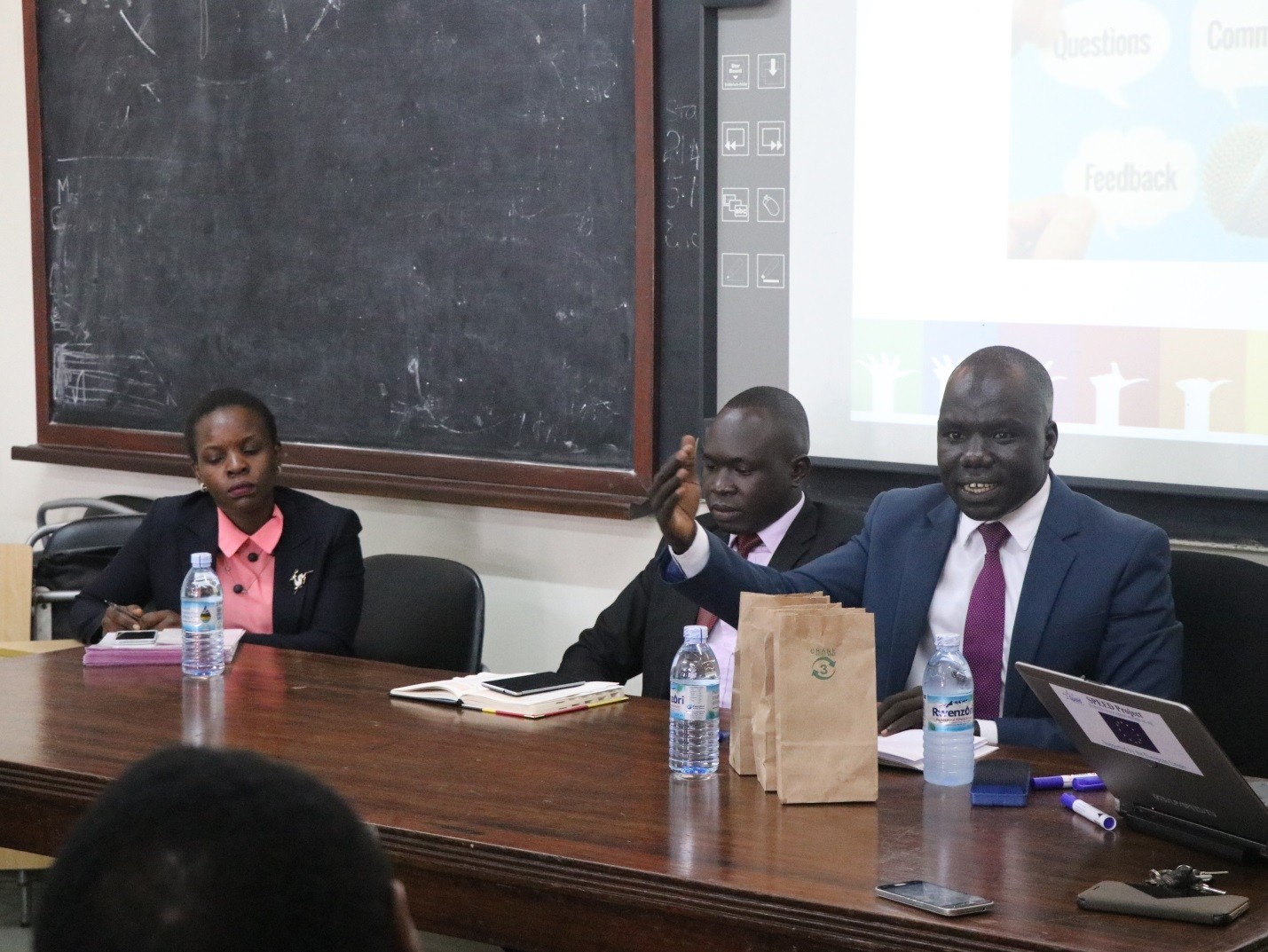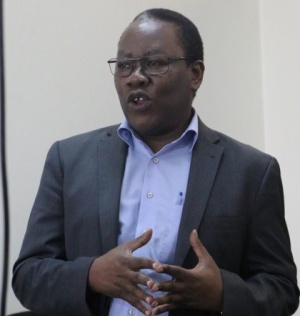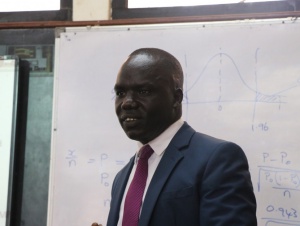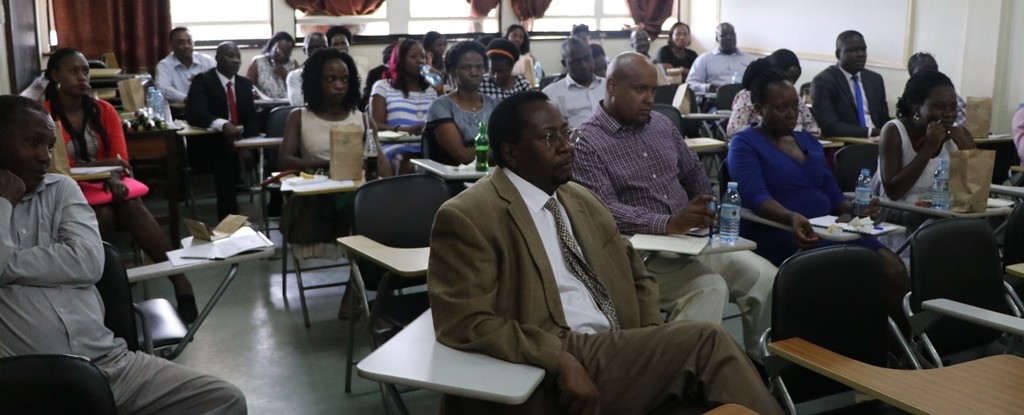
(Parliamentary Staff at the seminar. Left to right; Esther Namugoji-Publications, Boniface Okuda-Statistics and Sunday Olishe Etrima-Economics)
On Monday 24th September 2018, the Department of Health Policy, Planning and Management (HPPM) hosted a team from Parliament of Uganda’s Department of Research Services (DRS) for a seminar at Makerere University School of Public Health-MakSPH.
Prof Freddie Ssengooba (pictured) who chaired the seminar, in welcoming the team to MakSPH noted that “As School of Public Health, there is a lot of benefit by trying to understand how legislation is made, and various ways in which we can influence policy”. He admitted that it was imperative to really appreciate the various ways in which national legislation is done. He revealed that this seminar was birthed out of an aspiration to impact and influence policy through staff interactions between the Parliamentary research unit and MakSPH. To this end, the team had come to MakSPH to initiate the collaboration. Prof Ssengooba revealed that that the team was on a familiarization tour to understand how “we cook research and findings”, and to also shed light on the policy value chain – how legislation forms from research. “They are interested in harvesting research out of here”, said the Professor.
Mr Sunday Olishe Etrima, speaking on behalf of the parliamentary team clarified that “There is a lot of gap between researchers and users. Research should reach the policy value chain. If it does not reach parliament to make policy, it’s not creating much evidence. We are here as DRS to be the bridge between generators of research, and the users who are the policy makers. He further said that since the decisions made by Parliament are immensely significant and affect everybody, good ones are only possible if they are anchored on timely, relevant, valid evidence. “This evidence should be available and accessible so that it can make impact”, he added.
Mr Etrima stressed that it was time to make the huge volumes of research which are generated at university, count in informing decision – making at Parliament. “The research unit is not self – sufficient; we do not have laboratories or intellectual muscle. We cannot pretend that we can generate all the evidence. We need people who have the expertise and skills”, he acknowledged, although DRS is a multi – disciplinary unit with technocrats from key sectors in the economy. He agreed that it was imperative to have researchers working with DRS to generate this evidence so that they can have a contribution to make towards policy issues. He also disclosed that “Parliament always has public space, even sometimes making public calls for evidence in the papers, so that evidence can be presented, either at committee level or at plenary”.
The DRS team advised researchers to package research first as a brief (the Elevator speech) to make impact on the Members of Parliament, and then use the more detailed reports with the technical team, to generate more meaning. The brief gives direction to the bigger report if need arises.
It was also agreed that the research unit would have some kind of agreement in which MakSPH, particularly HPPM, will have an idea of what is on the Order Paper - business to be discussed on the floor of Parliament - so that research contributions can be aligned to what is being discussed. Mr Etrima also pledged to add MakSPH to the official list of sources of research evidence for the Parliamentary team.




